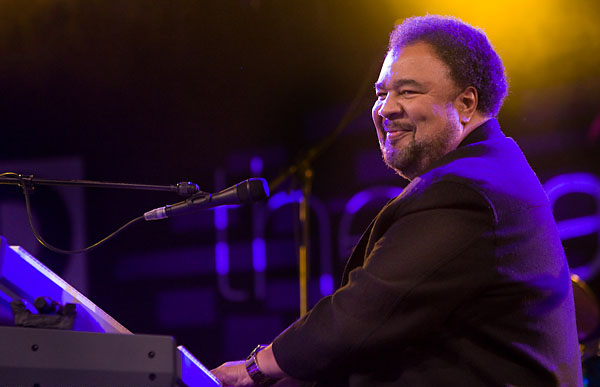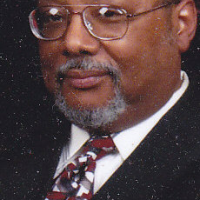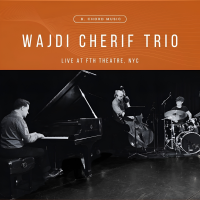Home » Jazz Articles » Interview » George Duke: Facing the Music
George Duke: Facing the Music
 GD: I've done that throughout my career. When I did the funk thing, it caught people by surprise. But I don't make music for that purpose. I make the music that I'd been led to do.
GD: I've done that throughout my career. When I did the funk thing, it caught people by surprise. But I don't make music for that purpose. I make the music that I'd been led to do.Face the Music was supposed to be my last album for Warner Brothers. But Matt Pierson, who was my project manager at Warner, said, "Look, George, we're going through some changes here. If this is as strong an album as I think, you'd be better off taking it to another label for distribution, or putting it out yourself."
I was shocked, but in hindsight Matt did me a favor. He sent me on my way to set up my own label, and it was time to do it before the bottom fell out of the industry. I did the record I wanted to do with Christian, Little John Roberts on drums and Jeff Lee Johnson on guitar. I wanted that band sound again. That's what that record was really about. We just went into the studio and had at it—everybody just playing live together and going after that vibe. The same thing was was After Hours is about. I wanted to do a concept album about a guy leaving work and coming home through rush hour traffic, cooling out, and it takes him through the rest of the night, which includes making love to his woman.
Face the Music was conceptual only in the sense that it's all one band. There was a track on there where I said, "This will never get played on the radio, but I just want to do something that is totally free. The last tune, "Ten Mile Jog," we did around midnight. I said, "All right, everybody just do what you want." I looked at Jeff Lee and said, "You start." And that was totally improvised—I went in and orchestrated it later. There's something about the immediacy of that stuff that I just love. It was like 13 minutes long, but I wasn't worried about time.
AAJ:: You've had an eclectic yet successful career, but you've been accused of selling out and compromising your talent. How do you respond to that criticism?

GD: Most people fall in love with a certain kind of jazz, and they hold on to that, and they don't want it to grow. Jazz is always going to grow in some direction or another. Right now, jazz is going in a direction I don't particularly care for. What smooth jazz has become is not what jazz should be. I defend the right of those guys to play it that way. I don't have to listen to it.
I prefer jazz that is more spontaneous. A lot of my funk stuff is more spontaneous than this smooth jazz that is all planned and worked out. It has no edge to it. I may not be able to explain what jazz is because it's very spiritual, but until you experience it, you don't know. It's like describing the taste of an apple to someone who's never eaten one. I know what jazz is, though my definition is pretty broad. As long as its got some swing, some spontaneity and some life to it, "Yeah man, that's jazz." Just because something is funky doesn't mean it's not jazzy. You would hope someone who likes jazz would be open to other forms of music.
I was at Bern, playing at this festival with my quartet, all acoustic. I've always enjoyed exploring. There's always going to be narrow people. I think jazz needs to be inclusive.
I started listening to the organ player in the church and graduated to Ray Charles, Les McCann, Ramsey Lewis, Wynton Kelly and those kind of players because they had soul in their playing. I eventually found Bill Evans and Herbie Hancock and Chick Corea—who, by the way, are both older than me [laughs]. I started listening and being influenced by them because they're great players, but that was later on. From there I started exploring John Coltrane. Later on it was Milton Nascimento and Parliament- Funkadelic.
That's what makes life exciting to me. I didn't just get married to a style. I love spaghetti, but I don't want spaghetti every day. I put my iPod on shuffle because I want to be surprised. I love funk and I love jazz, but I don't want to listen to either one every day. I love listening to music.
AAJ: In the liner notes from Faces in Reflection (MPS, 1974) you're quoted as saying: "As long as I can play what I want to and make a reasonable living I am happy. Making a hit isn't important." Does that quote still hold true for you, 36 years later?
GD: Absolutely. My chances of having another hit record are pretty remote—probably more remote now than it was then. I'm happy if I can play the music I'm led to. That is my joy in life—making the music that I like. And people can dig it or not dig it.
Selected Discography
George Duke, Déjà Vu (Telarc Jazz, 2010)
George Duke, Dukey Treats (Heads Up, 2008)
George Duke, My Soul: The Complete MPS Fusion Recordings (MPS, 2008)
George Duke, Face the Music (BPM, 2003)
George Duke, After Hours (Warner Bros., 1998)
George Duke, Illusions (Warner Bros., 1995)
George Duke, Muir Woods Suite (Warner Bros., 1993)
George Duke, Snapshot (Warner Bros., 1993)
George Duke, Night After Night (Warner Bros., 1989)
George Duke, Guardian of the Light (Epic, 1983)
Stanley Clarke/George Duke, The Clarke/Duke Project (Epic, 1981)
George Duke, Master of the Game (Epic, 1979)
George Duke, A Brazilian Love Affair (Epic, 1979)
George Duke, Don't Let Go (Epic, 1978)
George Duke, Reach For It (Epic, 1977)
Billy Cobham/George Duke, The Cobham/Duke Band: Live on Tour in Europe (Atlantic, 1976)
George Duke, The Aura Will Prevail (MPS, 1976)
Frank Zappa, One Size Fits All (FZ/Ryko, 1975)
George Duke, Faces In Reflection (MPS/Promising Music, 1974)
Frank Zappa, The Grand Wazoo (FZ/Ryko, 1972)
Jean-Luc Ponty, King Kong: Jean-Luc Ponty Plays the Music of Frank Zappa (Pacific Jazz, 1969)
Jean-Luc Ponty, The Jean-Luc Ponty Experience with The George Duke Trio (Pacific Jazz, 1969)
Photo Credits
Pages 1, 3, 5, 7: Hans Speekenbrink
Page 2: Susan Gordon
Page 4: Arkady Mitnik
Page 6: Mari Kadanik
Tags
George Duke
Interview
Jeff Winbush
United States
duke ellington
Cannonball Adderley
Frank Zappa
Jean-Luc Ponty
Sonny Rollins
Billy Cobham
Stanley Clarke
Dianne Reeves
Miles Davis
Al Jarreau
Dee Dee Bridgewater
john mclaughlin
Mahavishnu Orchestra
Boney James
Hubert Laws
Nicholas Payton
Bob Sheppard
Oscar Brashear
Rachelle Ferrell
Everette Harp
Michael Jackson
Herbie Hancock
Chick Corea
Joe Zawinul
Yusef Lateef
Milton Nascimento
Ndugu Chancler
Quincy Jones
Natalie Cole
Christian McBride
Ray Charles
Les McCann
Ramsey Lewis
Wynton Kelly
Bill Evans
Coltrane
PREVIOUS / NEXT
Support All About Jazz
 All About Jazz has been a pillar of jazz since 1995, championing it as an art form and, more importantly, supporting the musicians who make it. Our enduring commitment has made "AAJ" one of the most culturally important websites of its kind, read by hundreds of thousands of fans, musicians and industry figures every month.
All About Jazz has been a pillar of jazz since 1995, championing it as an art form and, more importantly, supporting the musicians who make it. Our enduring commitment has made "AAJ" one of the most culturally important websites of its kind, read by hundreds of thousands of fans, musicians and industry figures every month.






















